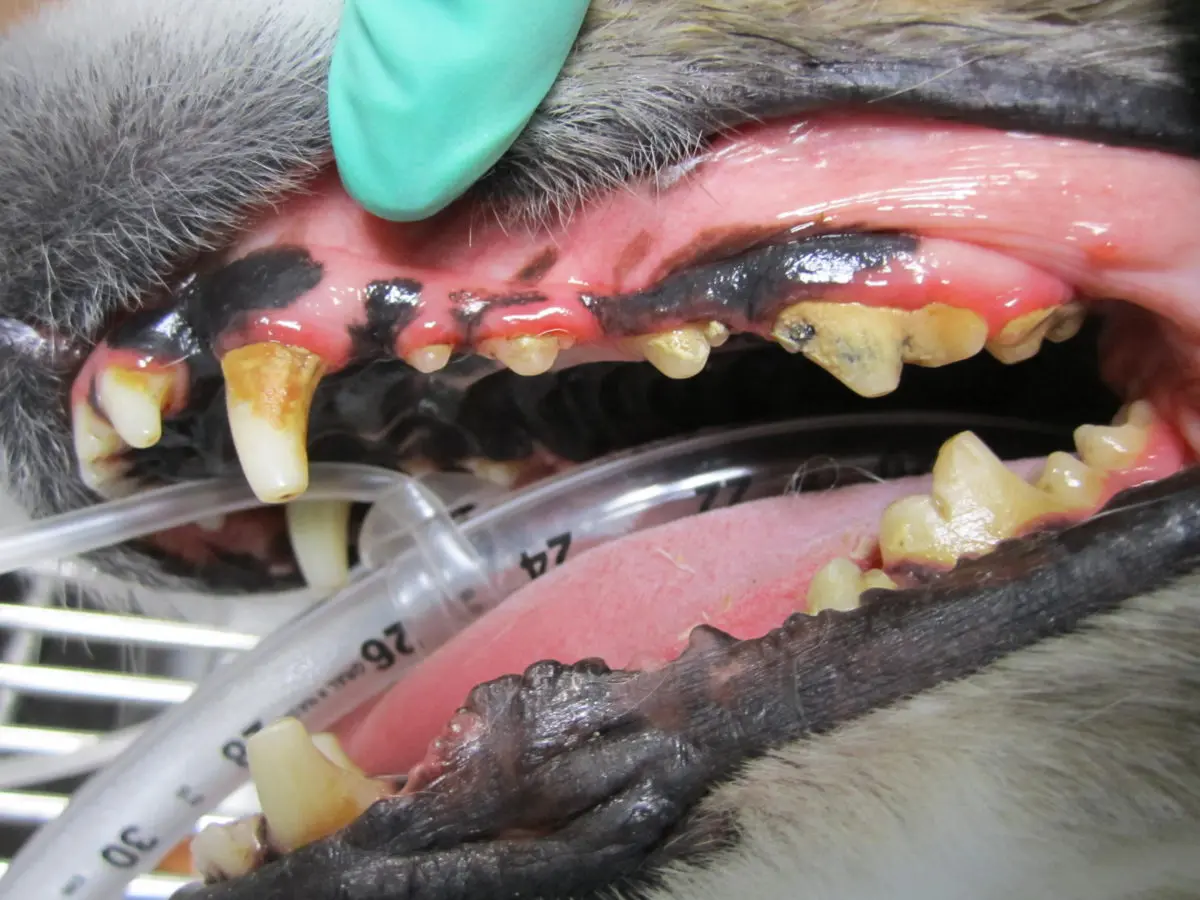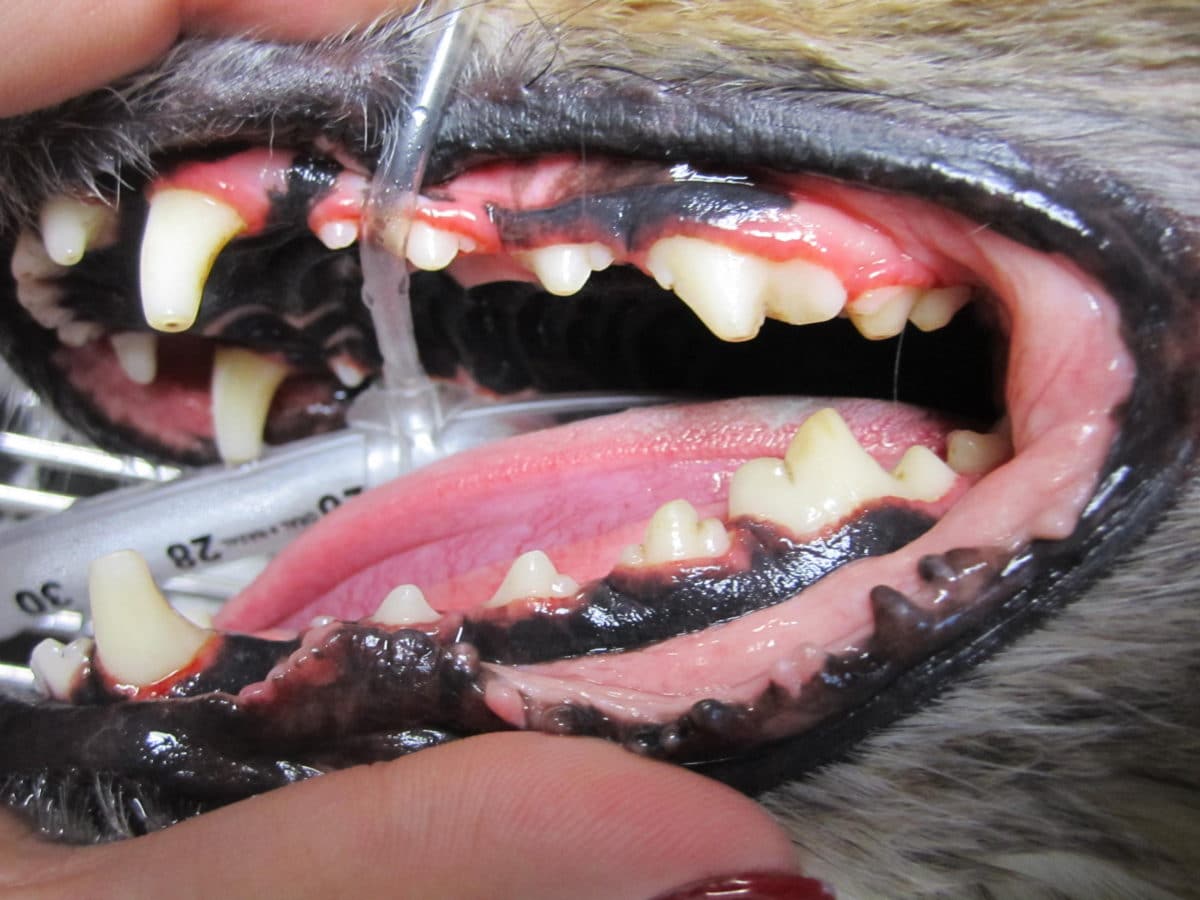Dental Cleaning
Your pet’s world revolves around its mouth. Keep their teeth in great shape.
What you need to know about Dental Disease
Dental Disease, commonly referred to as Periodontal Disease, is the most common illness found in dogs and cats. Periodontal disease is an infection caused by bacteria found in dental plaque.
The plaque is a non-visible film of saliva and bacteria that may build up to form tartar with the addition of food debris. Tartar usually manifests as a yellow discoloration of the teeth. Over time, the infection may progress and lead to abnormal breath and inflammation. Inflammation is painful and could be the cause of your pet not eating. Bacteria can also get into the bloodstream from the mouth and lead to various illnesses elsewhere in the body such as liver and heart disease.
Approximately 80% of dogs and cats have tooth disease by 3 years of age. Overall, 50% of canine and feline patients over 5 years of age have at least one painful mouth-related problem.
Like their wild relatives, our domesticated dogs and cats are genetically wired to hide signs of pain or illnesses as much as possible. This is also true when they are suffering from tooth and gum disease. Dental pain usually comes on gradually and it is a very common reason for pets to behave as if they are getting older.
Top 8 reasons why your pet might need a dental cleaning:
- Red stripe along the gum line (gingivitis)
- Abnormal breath due to disease-causing bacteria
- Any indication of any oral discomfort, such as dropping food or lack of chewing
- Any prolonged nasal discharge
- Nosebleed or bloody discharge from nostrils
- Oral or facial swelling or drainage
- Discolored teeth
- Fractured teeth with exposed inner tooth surfaces
Historical Perspective
For years, the standard of care in veterinary dentistry was to remove the tartar, also called calculus, by scraping and extracting any teeth that were loose in their sockets.
This approach fails to address the infection that develops in the mouth and the pain that comes along with it. In the end, a dental cleaning might become very costly because of the number of teeth that are being pulled. This may leave your pets with only a few teeth left if any, as they get
older.
Loose teeth have likely been diseased for years! It is much better to find and treat dental problems before extraction is required.
What is the best course of action?
Prevention is the better medicine. When we proactively look for and treat dental disease our pets feel better, their breath is not as repulsive, and they are able to maintain a strong human-animal bond.
The good news is that you can prevent oral disease in your pet by:
- Daily brushing teeth
- Routine mouth examinations
- Yearly dental cleanings
How often does my pet need thorough teeth cleaning?
Ideally, pets should get their teeth brushed daily and get a dental cleaning every one to two years. The average cleaning in a dog or cat is similar to a dentist cleaning a person’s teeth after they did not brush their teeth for a few years! Even if your pet is eating normally, that is not a good enough reason to delay getting their teeth cleaned. The truth is, they will eat despite having severe tooth pain, and in many circumstances, swallow their food instead of chewing it first.
The best way to keep your pet healthy and happy is with daily brushing and a deep dental cleaning every one to two years.
At Liberty Animal Hospital, our skilled professionals use a state-of-the-art teeth cleaning machine, digital dental radiography, and various other tools to properly assess your pet’s overall mouth health and provide the best recommendation to keep their teeth healthy.
The Veterinary Oral Health Council has more information.

▲ BEFORE TEETH CLEANING/DENTAL PROPHYLAXIS: Dog with moderate tartar and periodontal (gum) disease

▲ AFTER TEETH CLEANING/DENTAL PROPHYLAXIS: Clean teeth with tartar (calculus) removed above and below the gumline. BONUS: pleasant breath restored.
